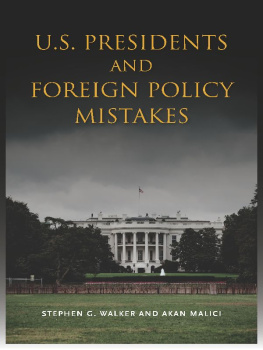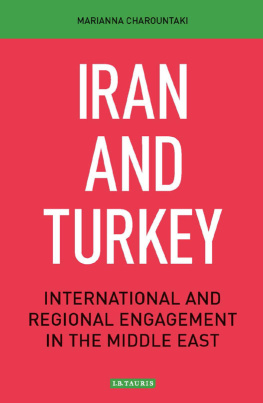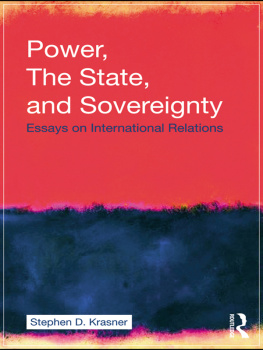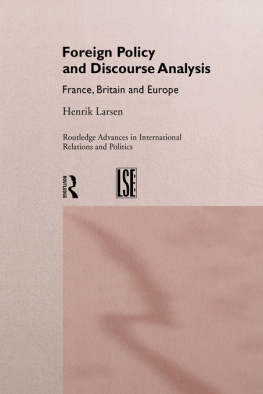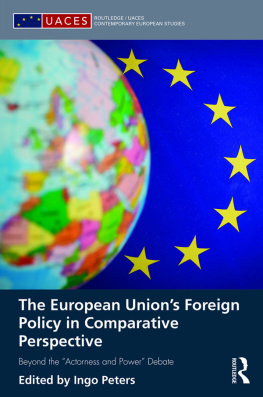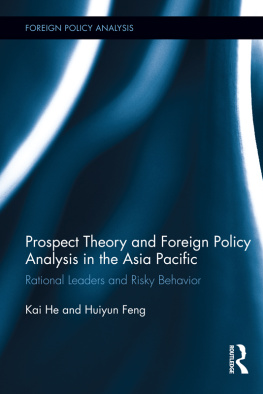Stephen G. Walker - Rethinking Foreign Policy Analysis: States, Leaders, and the Microfoundations of Behavioral International Relations
Here you can read online Stephen G. Walker - Rethinking Foreign Policy Analysis: States, Leaders, and the Microfoundations of Behavioral International Relations full text of the book (entire story) in english for free. Download pdf and epub, get meaning, cover and reviews about this ebook. year: 2010, publisher: Routledge, genre: Politics. Description of the work, (preface) as well as reviews are available. Best literature library LitArk.com created for fans of good reading and offers a wide selection of genres:
Romance novel
Science fiction
Adventure
Detective
Science
History
Home and family
Prose
Art
Politics
Computer
Non-fiction
Religion
Business
Children
Humor
Choose a favorite category and find really read worthwhile books. Enjoy immersion in the world of imagination, feel the emotions of the characters or learn something new for yourself, make an fascinating discovery.
- Book:Rethinking Foreign Policy Analysis: States, Leaders, and the Microfoundations of Behavioral International Relations
- Author:
- Publisher:Routledge
- Genre:
- Year:2010
- Rating:5 / 5
- Favourites:Add to favourites
- Your mark:
Rethinking Foreign Policy Analysis: States, Leaders, and the Microfoundations of Behavioral International Relations: summary, description and annotation
We offer to read an annotation, description, summary or preface (depends on what the author of the book "Rethinking Foreign Policy Analysis: States, Leaders, and the Microfoundations of Behavioral International Relations" wrote himself). If you haven't found the necessary information about the book — write in the comments, we will try to find it.
Stephen G. Walker, Akan Malici, and Mark Schafer present a definitive, social-psychological approach to integrating theories of foreign policy analysis and international relationsaddressing the agent-centered, micro-political study of decisions by leaders and the structure-oriented, macro-political study of state interactions as a complex adaptive system. The links between the internal world of beliefs and the external world of events provide the strategic setting in which states collide and leaders decide.
The first part of this ground-breaking book establishes the theoretical framework of neobehavioral IR, setting the stage for the remainder of the work to apply the framework to pressing issues in world politics. Through these applications students can see how a game-theoretic logic can combine with the operational code research program to innovatively combine levels of analysis. The authors employ binary role theory to demonstrate that relying only on a state-systemic level or an individual-decision making level of analysis leads to an incomplete picture of how leaders steer their ships of state through the hazards of international crises to establish stable relations of cooperation or conflict.
Stephen G. Walker: author's other books
Who wrote Rethinking Foreign Policy Analysis: States, Leaders, and the Microfoundations of Behavioral International Relations? Find out the surname, the name of the author of the book and a list of all author's works by series.



